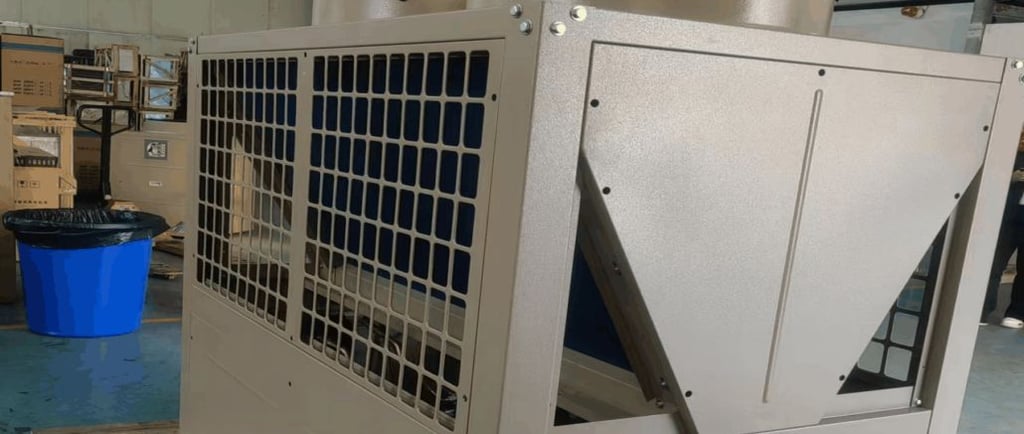Understanding Industrial Chillers: Essential Cooling Solutions for Optimal Performance
Industrial chillers typically function by circulating a refrigerant through a closed loop system. The refrigerant absorbs heat from the process fluid, which can be water or another medium, before passing through a condenser where it releases the absorbed heat. The cooled fluid is then returned to the process or machinery, providing a stable and controlled temperature environment.
INDUSTRY CHILLER
10/30/20241 分钟阅读


What is an Industrial Chiller?
An industrial chiller, often referred to as an industrial cooling system, is a crucial apparatus utilized in a multitude of industries to regulate and manage temperature effectively. The primary objective of these machines is to remove excess heat from processes or environments, ensuring that machinery and products function within their optimal temperature ranges. This capability is essential not only for maintaining product integrity but also for enhancing operational efficiency.
How Industrial Chillers Work
Industrial chillers operate by circulating a refrigerant through a closed-loop system. The process begins with the refrigerant absorbing heat from the process fluid, which can be water or another medium. As the refrigerant takes in this heat, it transforms from a liquid state to a gas. Following this, the gaseous refrigerant travels to a condenser where it releases the absorbed heat into the environment, usually using air or water as a heat exchange medium. Subsequently, the refrigerant condenses back into a liquid and is circulated back to the process fluid, thereby providing a stable and controlled temperature.
Applications and Importance of Industrial Chillers
Industrial chillers are not just important; they are essential in various sectors, including pharmaceuticals, food processing, plastics, and chemical manufacturing. These chillers help ensure that processes such as injection molding and pasteurization occur at precise temperatures, reducing the risk of product spoilage or defects. Additionally, maintaining optimal temperatures not only increases product quality but also extends equipment lifespan, leading to significant cost savings for businesses.
Moreover, industrial chillers are designed with energy efficiency in mind, minimizing operational costs while maximizing cooling performance. As industries continue to evolve, the demand for advanced chilling systems that can adapt to changing processes and environmental conditions only grows. By effectively managing heat gain, industrial chillers play a vital role in the smooth operation of industrial activities.
